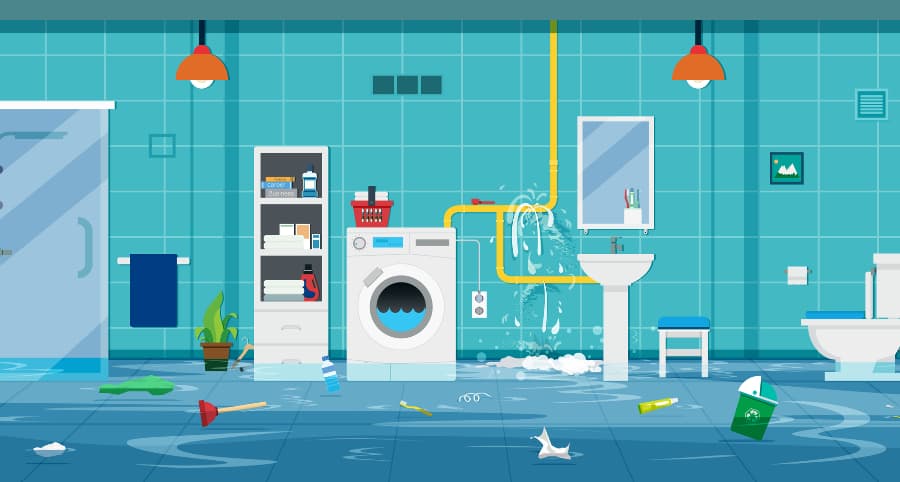
How Does A Water Leak Detector Work? See How To Protect Your Residence From Flooding
Water always has a way of getting into places where you prefer not to see it. Residents may come across it because of plumbing issues, compromised basement walls, and backed-up toilets. Sadly, a seemingly insignificant leak can swiftly result in major damage. Thankfully, incorporating a water leak detector can help avert a disastrous situation and pricey repairs. Learn how they function and why you might get one as part of your home security system.
How This Basic Device Safeguards Your Property
Most water leak detectors function by using corresponding electrodes. As water flows into the instrument and spans the area between the electrodes, an electrical circuit results. This linking triggers your alarm and alerts you to the detection of water.
You will also find flood detectors with a float switch that triggers when water rises to a specific point. Some industrial applications might utilize active sensors to stop the passage of water when triggered.
Why Integrate Your Leak Detector To Your Home Security?
Some preferred home security companies have water leak detectors and can incorporate them into your home’s security system. These sensors are an outstanding way to protect your property, as you’ll obtain an communication through your cell phone app when water is identified. Your monitoring team will also be informed. When flooding is detected, you should know promptly, as substantial damage can happen in little time.
It is also beneficial to have all your house’s devices connected to one app. You can switch on smart lights, adjust your thermostat, check window sensors, and receive emergency notifications from one place.
Where To Place Water Leak Detectors?
It’s easy to safeguard your property from flood damage with water leak detectors. But where precisely should you install them? Here are a few important areas you’ll want to observe:
- Basements: Any space below ground level is more prone to flooding. Cracked basement walls, excess rainwater, and failing sump pumps can create concerns.
- Bathrooms: Backed-up toilets and bathtubs left untended are frequent culprits. Make certain you utilize sensors that won’t be set off due to abundant moisture in steamy bathrooms.
- Below sinks: Leaky pipes and malfunctioning valves can quickly generate water problems. Water detectors can be invaluable in these hidden areas.
- Next to water heaters and HVAC units: Faulty drain lines and deteriorating water tanks could leak.
- Attics: Using a water leak detector is even more crucial if you’ve had previous problems with a leaky roof.
- Next to appliances: Water supply lines for appliances such as washing machines will deteriorate or become compromised, prompting leaks.
Request Water Leak Detectors With Your Home Security System In
Shield your property from flooding and receive instant alerts if disaster strikes with water leak detectors in from Secure24 Alarm Systems. We’ll integrate these devices along with monitored smoke detectors, CO detectors, and entry point sensors in your full-featured security system. Our straightforward app will keep you up to date no matter your whereabouts. Start on your new system today by contacting 833-319-7449.
